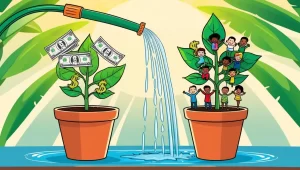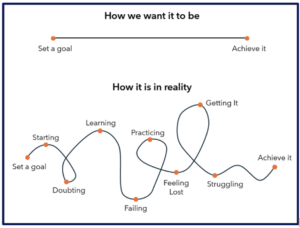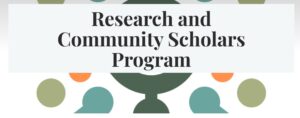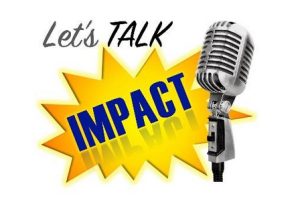Society’s complex problems are getting more challenging and are often rooted in unique community needs. This means the answers we seek are actually within the communities themselves! That’s where evaluators can come to the strategy table to help communities make sense of their data, figure out what is really going on and what they can do about it.
Evaluators often get called in late because we think evaluation is about data collection via surveys, focus groups and statistics. Even though these are all important tools evaluators use, evaluation is about recognizing, articulating, and applying values to information so we can help inform the community to make the best decisions for them. The idea that evaluative thinking is driven by values comes up against more traditional viewpoints that evaluation is best when it is done by a third-party, independent outsiders. The reality, however, is we need more evaluators who sit on the inside and are best able to assess what is happening on the ground in the community. Community-based evaluators are best positioned to bring new perspectives to data that an outsider might miss.
So, what does this reality have to do with diversification of the field? While the choice of methods of community-based evaluation is growing, the field is not diversifying as quickly. We need a concerted effort to expand evaluative capacity building into communities of color, LGBT communities and other communities who hold valuable insights and solutions but are not invited to the table because they lack certain credentials. That is why, I helped found Milwaukee Evaluation a decade ago, and why Evaluation Plus chose to sponsor the 2023 Social Justice Conference.
Evaluation Plus, not only supports the critical movement to engage a pipeline of evaluators from diverse backgrounds, we work with our partners to dedicate their resources to build evaluation capacity in storytellers and community leaders so that we can support hiring and developing new evaluators directly from where the work is taking place. And we resource communities of practice for evaluators across projects so that we can learn from each other.
Discovering the answers to the problems communities face will be more easily found when we do a better job of soliciting and hearing from diverse voices. When more evaluators emerge from communities who hold their own solutions, we will have the best shot at making faster and better progress in solving the many challenges our society faces.
Laura Pinsoneault, PhD, is president and CEO of Evaluation Plus.






